The David Suzuki Foundation states that “climate change is the challenge of our time.”
The Intergovernmental Panel on Climate Change has concluded that “scientific evidence for warming of the climate system is unequivocal.”
Environment Canada says “global temperature continues to rise and each of the last three decades has been successively warmer than any preceding decade since the 1850s.”
According to Nasa, the current warming trend is of particular significance because most of it is extremely likely (greater than 95 percent probability) to be the result of human activity since the mid-20th century and proceeding at a rate that is unprecedented over decades to millennia. The last five warmest years on record have taken place since 2010.
It’s now “fact” that the Earth is heating up at an unprecedented and alarming rate.
Climate change is causing droughts, heat waves, sea level rise, and hurricanes to be stronger and more intense. Climate experts predict that infrastructure, agriculture, fisheries, and most ecosystems will be increasingly compromised from natural disasters and water shortages due to our changing climate.

Coal-fired generation puts out about twice the amount of carbon dioxide – around 2,000 pounds for every megawatt hour generated. Most of the emissions of human-caused (anthropogenic) greenhouse gases (GHG) come primarily from burning fossil fuels—coal, hydrocarbon gas liquids, natural gas, and petroleum—for energy use.
Greenhouse gases are the most significant driver of observed climate change. There is now irrefutable proof that anthropogenic effects (human activities) are a major factor causing increased concentrations of greenhouse gases in the atmosphere.
The electric power industry is one of the top producers of greenhouse gases globally due to its reliance on coal, natural gas, and petroleum.
The best way to mitigate climate change is to reduce greenhouse gas emissions. Unless these human activities are stopped, climate change will continue unmitigated and may surpass a tipping point.
Reducing energy consumptions and switching to renewable sources of energy generation is not only the recommended but is critical in slowing down climate change.
Consumers have a choice on where they get their energy, and using solar panels instead of fossil fuels to produce electricity is a great solution. Solar panels use sunlight to generate electricity with no carbon emissions. The biggest hurdle to solar panels playing a very significant role in combatting climate change is rapid, large-scale deployment.
Thankfully, solar panels can be installed in a very short period of time, far quicker than building new fossil-fuel-fired power plants.
The cost of solar panels and equipment have plummeted by more 70 percent since 2010 making it more affordable than ever before.
Many North American consumers have installed solar panels for the savings alone because it can dramatically reduce or in some cases, completely eliminate electricity bills while helping improve the local economy in job creation. Having solar also reduces the impacts of future electricity rate hikes, due to the implementation of local city, provincial or state-run solar programs.
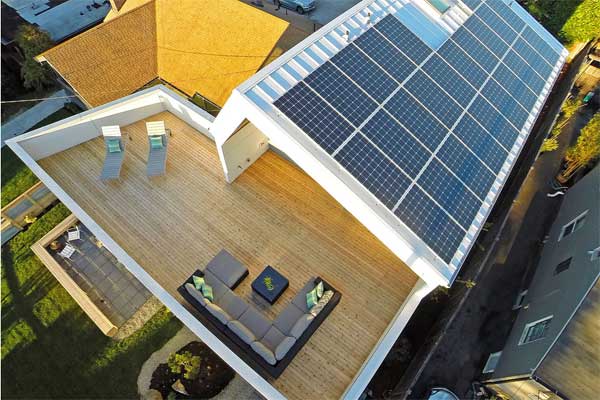
Solar panels do not release any emissions as they generate electricity. However, emissions are released during the manufacturing, materials transportation, installation, maintenance, decommissioning and dismantling of the solar energy systems. Nevertheless, the amount of these associated emissions pale in comparison to emissions created by natural gas, oil, and coal.
In recent years, solar panel technology has greatly evolved, and the panels are much more efficient and reliable than ever before. This allows consumers to generate more electricity with the same amount of space when compared with systems installed in the past.
Many solar installers also offer excellent warranties on their work in addition to long equipment warranties, making it a low-risk investment.
Studies also show that installing a solar system increases property values because solar homes are cheaper to operate due to the lower utility bills.
With all the positivity about solar panels and how good they can be for consumers, and for the environment—there still exist important questions surrounding solar adoption.
How can consumers find a trusted solar installer and how would they know if the system is sized properly, or installed correctly? What resources are available for them to make smart choices?
“Customers who are searching for solar have a very wide range of options and price points to choose from—which, unfortunately, has made shopping for a solar panel system, a daunting task filled with complex decisions,” says Mackie Hilborn, CEO of EnergyGeeks. “It is like consulting a mechanic while car shopping or a contractor while house hunting.”
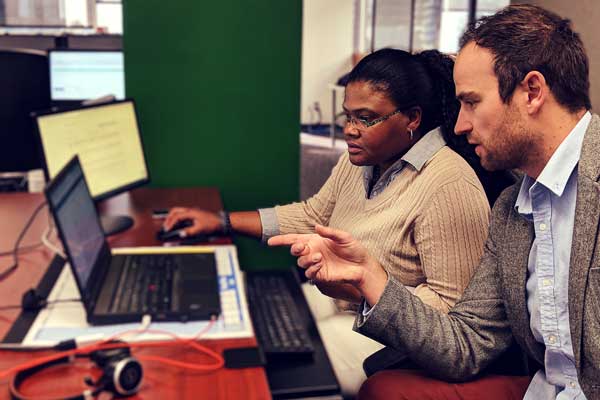
Mackie Hilbon, Chief Executive Officer of EnergyGeeks (right) reviewing project-progress status reports with a “Geek”. (Photo by pvbuzz.com)
EnergyGeeks is an innovative Canadian company that is changing the way people shop for residential and commercial solar energy systems throughout North America. They have created a proprietary digital platform that helps streamline the process from initial inquiries and price quotes through the permitting and installation process and beyond.
“Our digital platform uses a proprietary matching algorithm to recommend solar products and installers based on each customer’s unique needs,” says Mackie. “These recommendations help consumers make smart decisions about the solar options that fit their lifestyle and budgets.”
While the cost of customer acquisition for businesses has gone up and continues to do so, experts agree that the solar buying process and experience for consumers has actually become more confusing in recent years without help.
Electric utilities have different policies and compensate solar system owners differently for the solar electricity they feed to the power grid depending on location.
It is important that customers who are looking to go solar understand the timeline it takes for their installed system to pay off, and this is not a simple question to answer as there are many variables to consider.
“Payback periods depend on the market, it depends on the rate at which you can sell power back to the utility companies,” says Marcus Joo, co-founder, and chief technology officer of EnergyGeeks. “Sometimes, there is no payback period. It all depends on how the customer pays for the system, and panels the installer uses on the project.”
There are now more solar panels, inverters and mounting options than ever before with different price points, features, and warranties. A variety of financing options are available with different rates, terms, and criteria.
Although more solar options are ultimately a good thing for solar shoppers, it is hard to know which products are best for a given project and budget. EnergyGeeks understands these options and takes the time to explain them to consumers.

Geeks at the EnergyGeeks Toronto office. Each solar shopper is paired with their own “Energy Geek” or solar expert for a highly customized experience that is free of pushy sales tactics. (Photo by pvbuzz.com)
EnergyGeeks provides customized information based on the local electricity rates, solar incentives, property layout and size, climate, latitude, solar manufacturers, and available solar installers. Each solar shopper is paired with their own “Energy Geek” or solar expert for a highly customized experience that is free of pushy sales tactics.
The company is aware of existent government programs (if they exist) in specific markets that customers could take advantage of. Their goal is to find the right energy solution for any given property and to help make the process as easy as possible.
“One of our main objectives is to help the consumer realize financial gains with a solar panel installation, and if we can’t do that, we typically let them know as soon as possible so they don’t waste their time and resources,” says Joo.
The EnergyGeeks process takes several factors into consideration before making a recommendation to the consumer.

Marcus Joo, Chief Technology Officer of EnergyGeeks at their Toronto office (photo by pvbuzz.com)
As Joo explains, “What we have built is a whole multi-point recommendation system to help us determine how much power the consumer can actually produce from the system. We look at a lot of factors including utility rates, the property, insurance costs, credit, and other factors that may impact the cost of the system directly and indirectly—then we come up with a plan that makes sense for the consumer.”
The EnergyGeeks platform and recommendation process is completely digital. Their team comprises of solar experts that advice and guide visitors to their website on these recommended options from start to finish via chat, phone, text, and email. Best of all, the service is free for energy shoppers.
EnergyGeeks has entered into partnerships with a variety of solar manufacturers and distributors to ensure the availability of products; as needed. They have engaged in partnerships with solar installers that have appropriate training and industry required certifications to ease the process of installation.
They have also partnered with financial groups that can help pay or support consumers looking to finance solar panel systems.
The company continues to make great strides in pushing the adoption of solar by reaching out to other sectors of industry and market through other strategic partnerships with prominent influencers and organizations.
An example is their recently announced partnerships with the David Suzuki Foundation, a science-based environmental organization that works to protect the natural environment, and help create a sustainable Canada—and with Mike Holmes, an educator, influencer, TV personality and one of North America’s most trusted contractors.






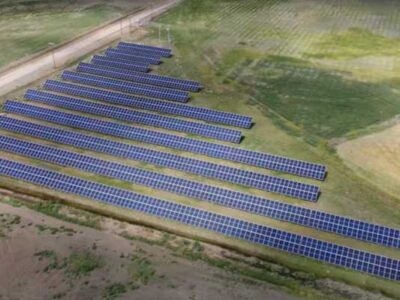




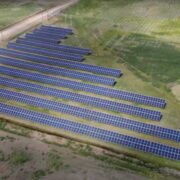
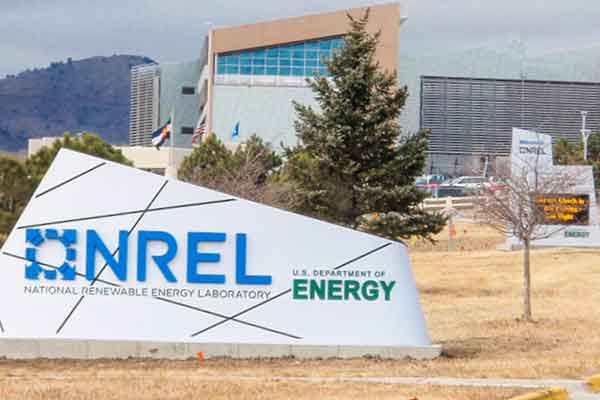

Comments